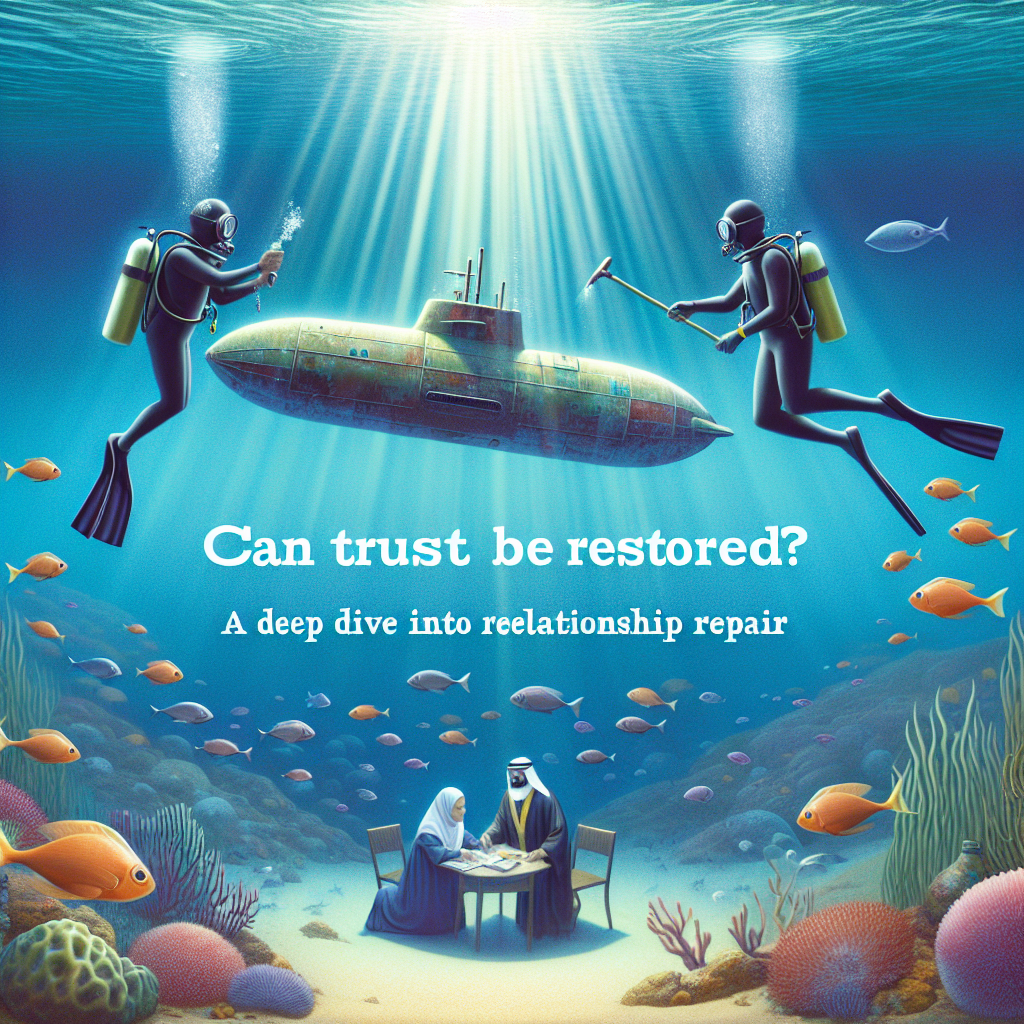
Introduction: The Journey to Rebuilding Trust
Imagine this: you’ve been betrayed by someone you deeply cared about. The trust that once served as the foundation of your relationship lies shattered. It’s a painful reality, yet it’s one many of us face at some point in our lives. The big question looms: Can Trust Be Restored? A Deep Dive into Relationship Repair will explore the intricate process of restoring trust, offering practical insights and real-world examples to guide you on this emotional journey.
In relationships—whether romantic, familial, or platonic—trust forms the bedrock of connection and understanding. Losing that trust can feel like losing a part of ourselves. But just because trust has been broken doesn’t mean it’s irreparable. This article will unravel the complexities behind trust restoration, focusing on strategies that work, supported by expert insights and real-life case studies.
Understanding Trust and Its Importance
What is Trust?
At its core, trust is the belief in the reliability, truth, or ability of someone. According to psychologist Dr. John Gottman, trust is built over time through consistent, positive interactions. The moment that trust is violated, it sets off a chain reaction of emotions: hurt, anger, confusion, and often, a sense of betrayal.
Why Does Trust Matter?
Trust is not just a nice-to-have in relationships; it’s essential. It fosters vulnerability, intimacy, and connection. Without trust, relationships can become transactional, devoid of genuine emotional bonds. Research by the American Psychological Association highlights that trust is directly linked to relationship satisfaction. Thus, when examining, Can Trust Be Restored? A Deep Dive into Relationship Repair, it’s important to recognize the critical role trust plays in the health of any relationship.
The Process of Trust Restoration
Step 1: Acknowledging the Breach
The first step in rebuilding trust is acknowledgment. Both parties must recognize what happened and the impact it has had on their relationship. This is where honesty plays a crucial role. Let’s look at a case study.
Case Study: Jennifer and Mark
Jennifer discovered that her partner, Mark, had been unfaithful. The first critical moment came when Mark fully acknowledged his actions without excuses. By expressing remorse and validating Jennifer’s feelings, Mark took a significant step toward healing their relationship.
Analysis: Mark’s acknowledgment allowed for a safe space where both partners could express their hurt and discuss the betrayal. This vital first step laid the groundwork for the next stages of rebuilding trust.
Step 2: Open Communication
Once the breach is acknowledged, the next step is to engage in open communication. Research shows that couples who maintain transparency following a betrayal experience a higher likelihood of successfully rebuilding trust.
Tips for Effective Communication:
- Use “I” statements to express feelings.
- Encourage the other party to share their perspective.
- Avoid blame language; focus instead on the situation.
Step 3: Rebuilding Commitment
Rebuilding trust requires a renewed commitment to the relationship. This entails actively working together to establish new boundaries and expectations.
Case Study: Sarah and Tom
After the initial shock of discovering financial infidelity, Sarah and Tom made a pact to review their finances together weekly. This commitment not only helped rebuild trust but also fostered a sense of teamwork.
Analysis: Jointly addressing the issues allows partners to feel united in tackling what once threatened to pull them apart. Commitment ultimately lays the groundwork for future trust.
Step 4: Patience and Forgiveness
Trust rebuilding doesn’t happen overnight. It requires patience and a willingness to forgive—both from the person who has experienced betrayal and the one who betrayed it.
Tips for Practicing Patience and Forgiveness:
- Set realistic expectations for recovery.
- Acknowledge setbacks but don’t dwell on them.
- Focus on positive memories and experiences to highlight growth.
Tools and Techniques for Rebuilding Trust
Use of Therapy
For complicated situations, professional help can be a game changer. Couples therapy provides a structured environment for couples struggling with trust issues. A therapist can facilitate discussions that may be too difficult to navigate alone.
Establishing Trust Contracts
A trust contract is an agreement that outlines what both parties need to feel secure. This can involve specific behaviors, communication guidelines, or check-ins.
Practicing Emotional Intimacy
Intimacy is an integral part of trust restoration. Engage in activities that foster emotional closeness—discuss dreams, fears, and aspirations.
Research Insights
According to a 2020 study published in the Journal of Family Psychology, emotional intimacy significantly reduces the likelihood of hurtful incidents in relationships, demonstrating that higher levels of closeness typically correlate with a stronger foundation of trust.
Practical Framework for Trust Repair
Trust Repair Framework
| Component | Description | Action Item |
|---|---|---|
| Acknowledge | Recognize the breach | Initiate a conversation. |
| Communicate | Foster open dialogue | Schedule regular check-ins. |
| Commit | Reinforce dedication | Create a trust contract. |
| Patiently Forgive | Work towards healing | Engage in emotional sharing. |
Utilize this framework as a roadmap for rebuilding trust in any relationship.
Conclusion: Moving Forward Together
Rebuilding trust may be fraught with challenges, but it is entirely possible with dedication and effort. Can Trust Be Restored? A Deep Dive into Relationship Repair has illuminated the path toward healing, emphasizing acknowledgment, communication, commitment, and patience. Those who traverse this path can emerge stronger than before, often with a renewed appreciation for their relationship.
Remember, the journey is not linear; it may involve setbacks and misunderstandings. However, every step taken toward rebuilding trust is a step toward deeper connection. By employing these strategies and managing expectations, you can turn the page on betrayal, writing a new chapter of growth and understanding in your relationship.
FAQs
1. How long does it take to rebuild trust after betrayal?
Rebuilding trust can take time, often months or even years, depending on the severity of the betrayal and the effort both parties put in.
2. Is it possible to fully regain trust after it has been broken?
Yes, while the relationship may change, many couples can regain a strong sense of trust through consistent effort and open communication.
3. What can I do if my partner isn’t willing to communicate?
If your partner is unwilling to engage, suggest seeking professional help together to facilitate open dialogue.
4. Can trust be rebuilt after repeated betrayals?
Repeated betrayals complicate trust rebuilding, but it is still possible. This often requires more extensive therapy and a deep commitment from both parties to change the behaviors that led to betrayals.
5. Are there specific exercises to foster trust?
Yes! Activities that require cooperation, such as team-building exercises or shared projects, can help cultivate trust over time.
As you embark on your journey, remember that trust repair is an opportunity for growth. Take actionable steps, keep an open heart, and you may find that trust can not only be restored—it can flourish!















